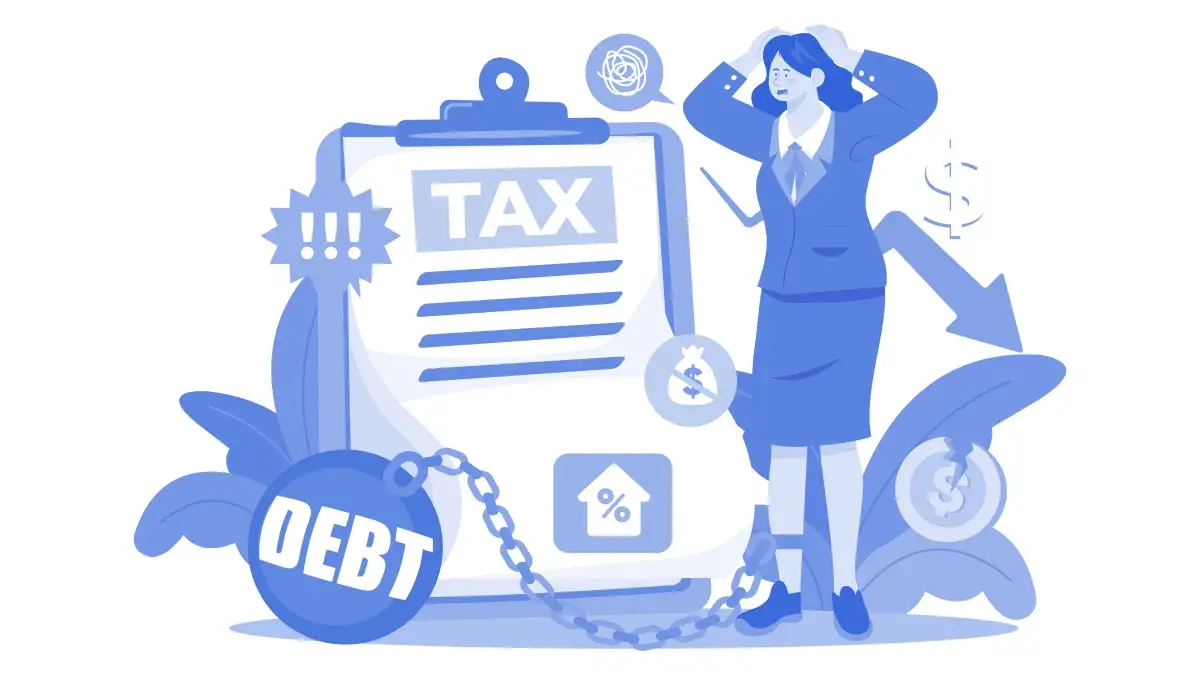Understanding Tax Debt
Tax debt occurs when you owe money to the Internal Revenue Service (IRS) or state tax authorities. This typically happens when you haven't paid enough taxes throughout the year, failed to file returns, made errors on your tax forms, or couldn't afford to pay your tax bill. Unlike most other forms of debt, tax debt comes with unique consequences, including tax liens, wage garnishment, bank levies, and even potential criminal charges for tax evasion. The IRS charges both interest (which compounds daily) and penalties on unpaid taxes, causing relatively small tax debts to grow significantly over time. However, federal and state tax authorities also offer specific relief programs designed to help taxpayers resolve their debt through various payment arrangements and settlement options.

Common Challenges with Tax Debt
Tax debt presents unique difficulties that can make it particularly stressful to address.
Rapidly growing balances due to both penalties and daily compounding interest
Aggressive collection actions by tax authorities, including wage garnishment and bank levies
Complicated paperwork and documentation requirements for relief programs
Limited timeframes to respond to IRS notices before enforcement actions begin
Potential impact on professional licenses, passport eligibility, and future tax refunds
Difficulty accessing knowledgeable assistance with the complex tax resolution process
Fear and anxiety surrounding interactions with tax authorities
Relief Options for Tax Debt
The IRS and state tax authorities offer several formal programs to help taxpayers resolve outstanding tax obligations.
- 1
Installment Agreements: Monthly payment plans that allow you to pay your tax debt over time
- 2
Offer in Compromise: A settlement program that lets you resolve your tax debt for less than the full amount owed
- 3
Currently Not Collectible Status: Temporary hardship status that pauses collection actions
- 4
Penalty Abatement: Relief from certain penalties based on reasonable cause
- 5
Innocent Spouse Relief: Protection from tax debt incurred by a spouse or former spouse
- 6
Statute of Limitations: Tax debts generally expire after 10 years unless extended
- 7
Bankruptcy: In some cases, certain older tax debts may be eligible for discharge
Strategic Approaches to Tax Debt Relief
Resolving tax debt requires a well-planned approach tailored to your specific financial situation.
Filing all required tax returns, even if you can't pay, to stop non-filing penalties
Requesting a transcript of your tax account to verify the accuracy of the debt
Responding promptly to all IRS notices to prevent escalation to collection actions
Gathering documentation of financial hardship if seeking currently not collectible status
Calculating an affordable monthly payment before requesting an installment agreement
Conducting a preliminary qualification assessment before applying for an Offer in Compromise
Considering professional representation for complex cases or significant tax debt
Eligibility Requirements for Tax Debt Relief
Each tax relief program has specific qualification criteria that must be met for approval.
- 1
Installment Agreements: All tax returns must be filed, and you must provide financial information for larger debts
- 2
Offer in Compromise: Must demonstrate doubt as to collectibility, liability, or effective tax administration
- 3
Currently Not Collectible: Must prove that paying would create significant financial hardship
- 4
Penalty Abatement: Must show reasonable cause for failure to comply with tax obligations
- 5
Innocent Spouse Relief: Must demonstrate you didn't know about the tax understatement when signing the return
- 6
Bankruptcy Discharge: Tax debt must generally be at least 3 years old with returns filed at least 2 years ago
- 7
Fresh Start Program: Various eligibility requirements depending on which specific relief option you pursue
Why Expert Help Matters For Tax Debt
Tax resolution is one of the most complex areas of financial management, involving intricate tax codes, constantly changing regulations, and high-stakes negotiations with government agencies. Tax relief experts understand the nuances of various IRS and state programs, know exactly what documentation is required, and can determine which approach is most likely to succeed based on your specific situation. They can also communicate directly with tax authorities on your behalf, reducing stress and improving outcomes. Professional representation often results in lower settlement amounts, more favorable payment terms, and prevention of aggressive collection actions. For many taxpayers, the financial benefits of professional assistance significantly outweigh the costs, especially when facing substantial tax debt or complex circumstances.

Matthew Collins
Financial Expert & Debt Relief Specialist
New York
Matthew Collins brings over 10 years of experience helping people reduce debt and take back control of their finances.
Other Types of Debt
Explore other types of debt that may also qualify for relief programs.